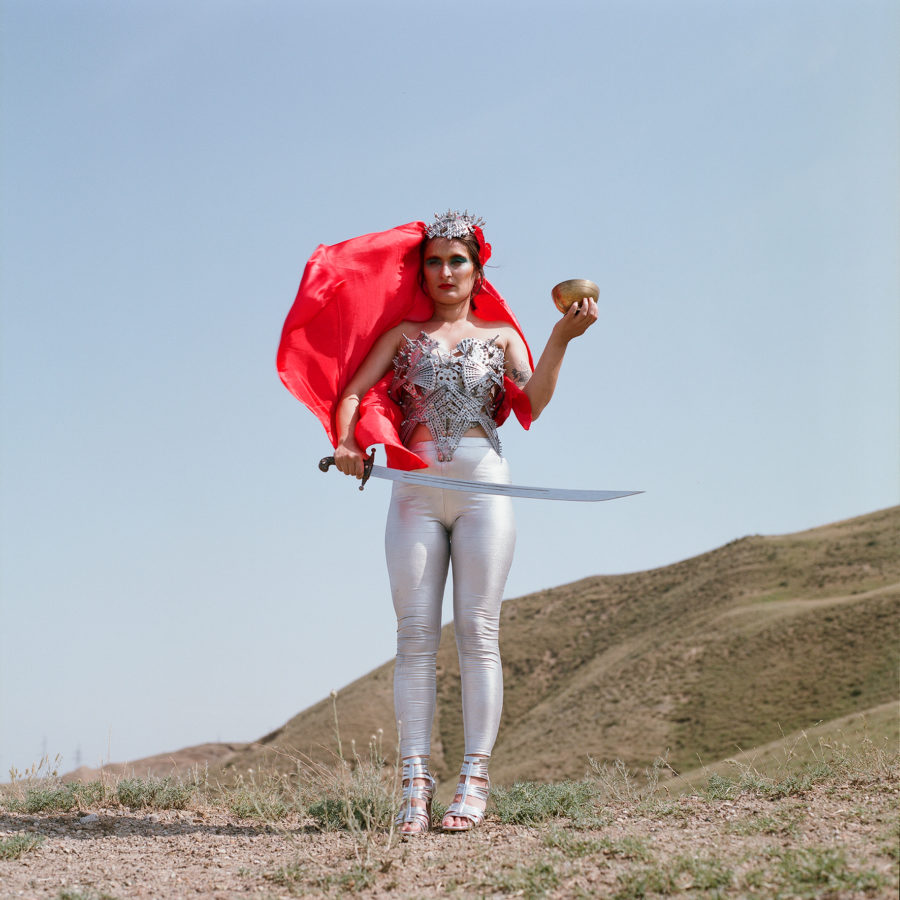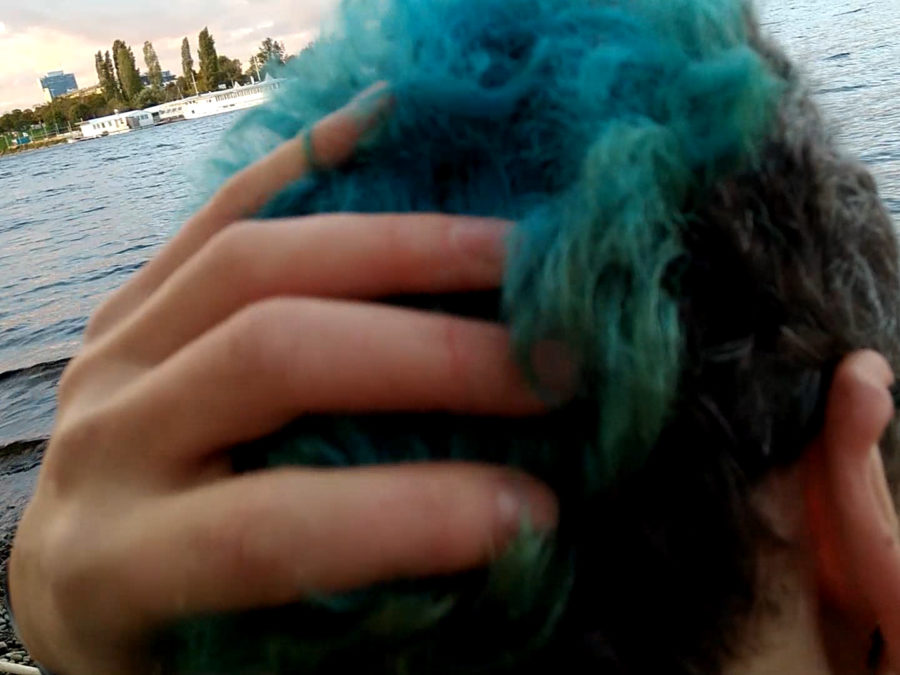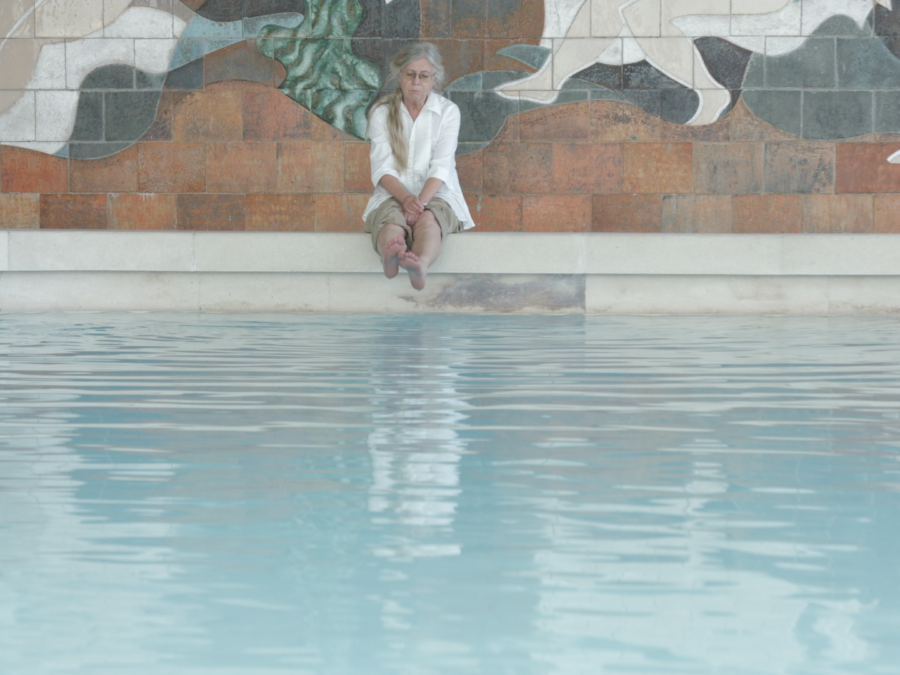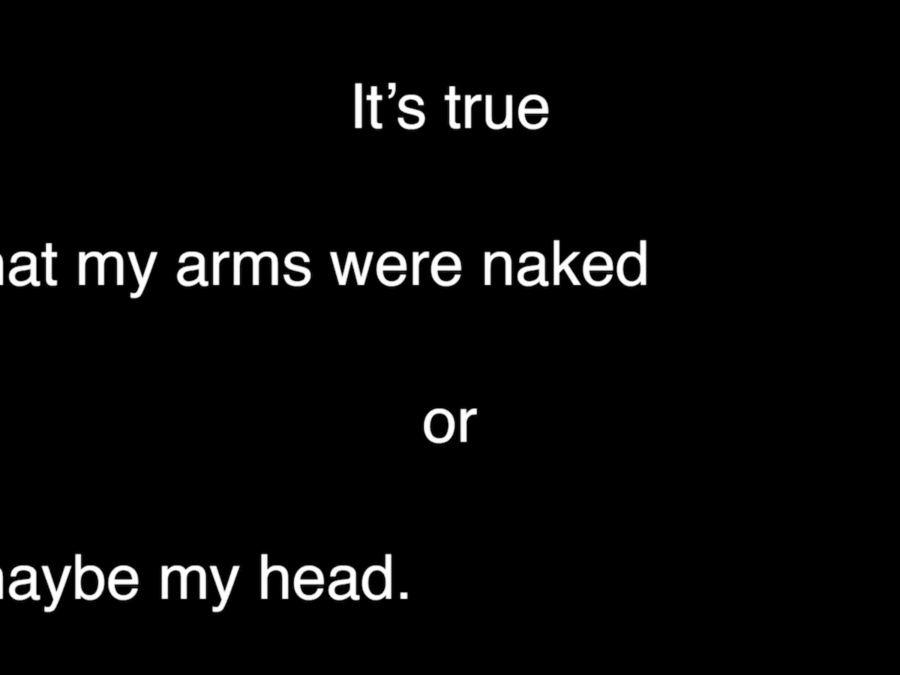The plot of the work Commission (2020) by Ieva Balode begins at an unknown moment in time in Georgia and it shows a mythical, heroic female character: at first as a statue, then as a person who is writing a book, which is eventually delivered to three mighty women leaders by a messenger. The messenger is played by Ieva Balode, the other women are portrayed by curators from the Latvian Centre for Contemporary Art (LCCA). In this way, Balode comments on the rewriting of the canon by feminist curating.
The cover of the delivered book alludes to the old Georgian epos The Knight in the Panther’s Skin by the poet Shota Rustaveli (1196–1207), however it contains an alternative matriarchal history of the world. The first part of the Rustaveli’s poem is dedicated to Queen Tamar and the cover serves as a reference to female power in the past. The mixture of science fiction, B-movies, and Christian iconography constitute a stylistic background of the women’s rebellion.
The starting point of Balode’s work was her interest in modern architecture and brutalism. She gained further inspiration from a Georgian artist and curator Gvantsa Jishkariani. Queen Tamar is still worshipped today, even though the contemporary Georgian culture is very conservative and masculine. The statue of a woman that can be seen at the beginning of the film is the monument Kartlis Deda (Mother of Georgia) in Tbilisi built in 1958 for the 1500th anniversary of the foundation of the city and it is a work of the Georgian sculptor Elgudzha Amashukeli. Another monument is the Chronicle of Georgia on the Tbilisi sea, unfinished work of Zurab Tsereteli. With these significant socialist architectural monuments, Balode references the unsuccessful propaganda of gender equality during the Soviet era.
Ieva Balode was born in 1987, Riga, Latvia. She is an artist and analog film activist working with analog film and image. Her installations, films, and performances were presented at international exhibitions and festivals. As a film activist, she is a founding member of Baltic Analog Lab – an artist collective providing a space and platform for analog film production, research, and education. She is also a director of the experimental film festival Process taking place in Riga since the year 2017.




